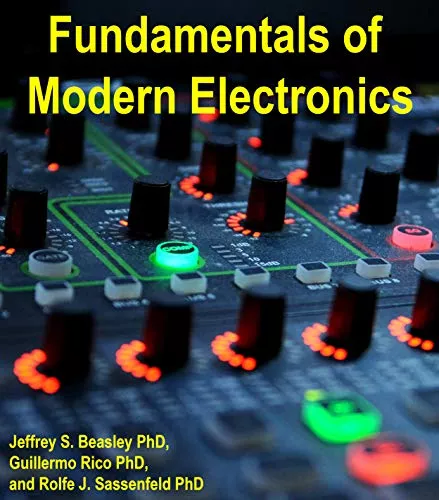Fundamentals of Modern Electronics [PDF]
Fundamental of Modern Electronics is a modern, thorough treatment of the topics traditionally covered during a first semester course in electronic device theory and applications. The minimum preparation for students beginning their study of this material is a course in dc circuit analysis. Therefore, students who begin their study without having completed a course in ac circuit analysis should be taking that course as a corequisite. Basic calculus is used as needed for the development of theoretical principles, such as defining the small signals models for a MOSFET or BJT.
Principal considerations in selecting topics for this edition were the significance of each topic in modern industrial applications and the impact that they are likely to have on emerging technologies. Consequently, integrated-circuit applications are presented in great detail, including coverage of analog and digital transistor building blocks, and semiconductor theory and applications.
This textbook provides a complete introductory coverage of the p-n junction, basic diode operation, diode current equation, semiconductors, identifying Forward- and Reverse-Bias Operating Modes, p-n Junction capacitance, rectifiers, voltage regulation, BJT circuits, CE bias design, CB bias design, CC bias design, BJT transistor switch, MOSFET modes of operation, Cutoff,Triode, Saturation, MOSFET circuits and analysis, analog transistor building blocks including the current source/sink, current mirror, gain stage, differential amplifiers, Miller operational amplifier, digital transistor building blocks, Six-Transistor Static RAM Cell The Sense Amplifier, creating dynamic RAM, creating Read-Only Memory, The Floating Gate, a design procedure for creating CMOS combinatonal circuits, Transistor-Level Implementation of CMOS combinational Logic Circuits, transistor Behavior of CMOS Logic Circuits, clocked CMOS VLSI Circuits, Input/Output (I/O) Buffers, Ideal Operational Amplifier Circuits and Analysis, inverting op-amp, non-inverting op-amp, voltage follower, Single Power Supply Operation, Voltage Summation, Voltage Subtraction, Controlled Voltage and Current Sources.
- Share on Facebook


